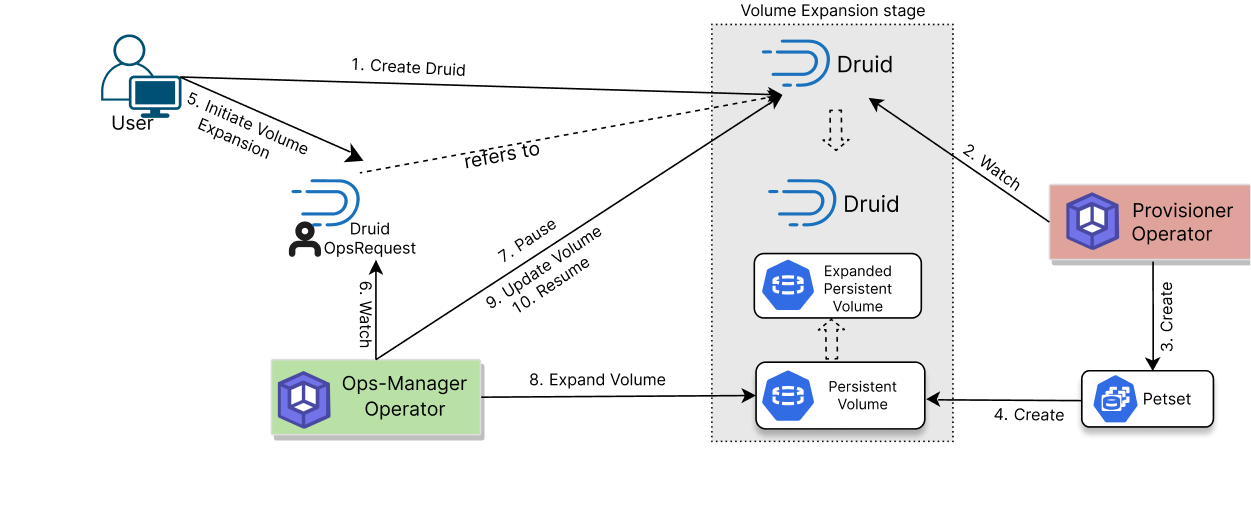You are looking at the documentation of a prior release. To read the documentation of the latest release, please
visit here.
New to KubeDB? Please start here.
Druid Volume Expansion
This guide will give an overview on how KubeDB Ops-manager operator expand the volume of various component of Druid like:. (Combined and Topology).
Before You Begin
- You should be familiar with the following
KubeDBconcepts:
How Volume Expansion Process Works
The following diagram shows how KubeDB Ops-manager operator expand the volumes of Druid database components. Open the image in a new tab to see the enlarged version.

The Volume Expansion process consists of the following steps:
At first, a user creates a
DruidCustom Resource (CR).KubeDBProvisioner operator watches theDruidCR.When the operator finds a
DruidCR, it creates required number ofPetSetsand related necessary stuff like secrets, services, etc.Each PetSet creates a Persistent Volume according to the Volume Claim Template provided in the petset configuration. This Persistent Volume will be expanded by the
KubeDBOps-manager operator.Then, in order to expand the volume of the druid data components (ie. Historicals, MiddleManagers) of the
Druid, the user creates aDruidOpsRequestCR with desired information.KubeDBOps-manager operator watches theDruidOpsRequestCR.When it finds a
DruidOpsRequestCR, it halts theDruidobject which is referred from theDruidOpsRequest. So, theKubeDBProvisioner operator doesn’t perform any operations on theDruidobject during the volume expansion process.Then the
KubeDBOps-manager operator will expand the persistent volume to reach the expected size defined in theDruidOpsRequestCR.After the successful Volume Expansion of the related PetSet Pods, the
KubeDBOps-manager operator updates the new volume size in theDruidobject to reflect the updated state.After the successful Volume Expansion of the
Druidcomponents, theKubeDBOps-manager operator resumes theDruidobject so that theKubeDBProvisioner operator resumes its usual operations.
In the next docs, we are going to show a step-by-step guide on Volume Expansion of various Druid database components using DruidOpsRequest CRD.



































